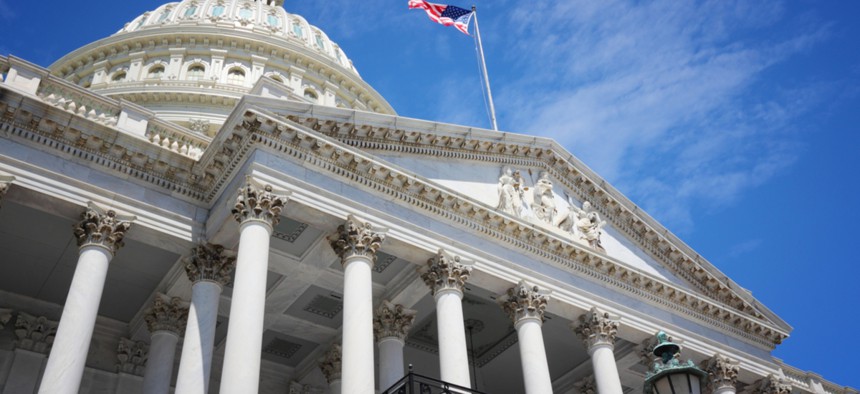Latest Spending Deal Includes Almost $20 Billion for IT Programs

Tupungato/Shutterstock
The spending bills include multimillion-dollar agency projects and governmentwide funding sources for IT modernization and cybersecurity.
Congress passed a joint agreement on spending for the remainder of fiscal 2019, which, once signed by the president, would avoid again shuttering a quarter of the federal government on Friday.
The Senate on Thursday voted 83-16 to approve a spending package to keep federal agencies open and in the evening, the House passed the measure 300-128.
The bills include a lot to interest federal employees—including a 1.9 percent pay raise, retroactive to Jan. 1—though, most importantly, it would keep the remaining unfunded federal agencies open and running through the end of the fiscal year.
For technology-focused feds, the spending deal includes approximately $19.5 billion set aside for information technology and cybersecurity projects at federal agencies.
The spending agreement includes $1.38 billion for fencing and other physical barriers along the southern border but does not offer the full $5 billion for a concrete wall President Trump originally requested. The money for physical barriers is supplemented by significant funding for border security technologies, including $564 million for non-intrusive imaging equipment at southern border crossings and $100 million for new border security technologies.
The legislation also calls for more investment in Customs and Border Protection’s aerospace capabilities, which could include more spending on unmanned systems, or drones.
Along with additional border tech, the legislation includes $820 million for Homeland Security Science and Technology Directorate’s “cutting edge” programs and $1.35 billion for the Cybersecurity and Infrastructure Security Agency, the newly renamed and elevated cybersecurity office.
Governmentwide, the bill lays out $25 million for the Technology Modernization Fund, a revolving fund created to help agencies kickstart critical IT modernization projects. The additional money would cap the fund at $125 million and bring the unallocated balance up to $35.8 million.
“While this funding falls short of the authorization level for this fiscal year, I am pleased that our efforts with appropriators and relevant agencies to improve transparency around agencies’ modernization proposals have resulted in bipartisan support for the Technology Modernization Fund,” said Sen. Jerry Moran, R-Kan., who sponsored the Modernizing Government Technology Act that established the fund. “Congress and federal agencies must work hand-in-hand to provide the necessary resources to the TMF, which, used responsibly, is a vital tool for the federal government’s task of keeping our nation’s critical IT infrastructure efficient and secure.”
Congressional appropriators also saw fit to add to the Office of Management and Budget’s IT slush fund. The legislation would allocate $28.5 million to the Information Technology Oversight and Reform fund, which can be doled out to support agency IT projects as the discretion of OMB Director Mick Mulvaney. The final number is a bump up from the first 2019 omnibus package, which passed the House in March and included just $19 million for this line item.
And the General Services Administration would get $55 million for the Federal Citizen Services Fund “for necessary expenses in support of interagency projects that enable the federal government to enhance its ability to conduct activities electronically, through the development and implementation of innovative uses of information technology.”
Several other agencies are set to receive a few million dollars to put toward cybersecurity and modernization efforts, including the departments of Housing and Urban Development ($280 million), Agriculture ($42 million), Justice ($37-$77 million), Treasury ($49 million), Transportation ($15 million), Interior ($55.7 million), Office of Personnel Management ($14 million) and the Commodity Futures Trading Commission ($50 million).
Press Secretary Sarah Sanders said President Trump intends to sign the bill and find alternative funding for the wall.
“As he has stated before, he will also take other executive action—including a national emergency—to ensure we stop the national security and humanitarian crisis at the border,” she said Thursday.
Editor's Note: This story has been updated to reflect the package passed the Senate and the House.
NEXT STORY: FCW Insider: Feb. 14






